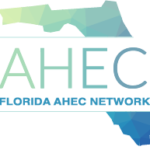
Each day there will be a webinar at 10 am.
May 24th: Environmental tobacco smoke, airborne allergens, and the development of allergic asthma in Health Zone 1 of Jacksonville Florida.
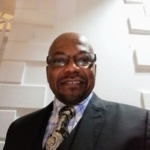 Dr. Brian Seymour, Ph.D., Edward Waters College
Dr. Brian Seymour, Ph.D., Edward Waters College
Dr. Seymour is the Research Director of the Center for the Prevention of Health Disparities at Edward Waters College (EWC). He is also a tenured professor of Biology in the Department of Mathematics and Science there. As a scientist and an active researcher funded by the NSF, he is currently in the process of establishing a pollen counting station on campus. He is a member of the Board of Directors of the Northeast Florida Area Health Education Center (AHEC) and also a member of the Community Research Advisory board in Jacksonville Florida. He served as Chair of Biology at EWC from 2010-2014. He was the recipient of the 2015 Historically Black Colleges and Universities (HBCU) Digest award for Best Male Faculty for allergy studies he conducted in Jacksonville Florida. He holds an earned doctorate in Immunology from the University of California, Davis and is certified by the American Society of Clinical Pathologists as a Technologist in Immunology. He has 17 years of research experience in the field of biotechnology at the DNAX Research Institute, Palo Alto Ca. Dr. Seymour has authored/coauthored over 24 scientific publications. His notable work in Allergy, Asthma and Immunology has been published in several leading peer review journals including the journals- Science and Nature. His pioneering work on the effects of second-hand smoke on allergic asthma was partly instrumental on legislation that ban smoking in public places in the state of California. Dr. Seymour is currently pursuing public health research opportunities in the local community. His goal is to inform and support the policy making process that can ultimately eliminate the health disparity that exists in urban communities such as Health Zone 1 where EWC is located.
Objectives
- To understand the effect of second-hand smoke on allergic asthma.
- To discuss the mechanism of allergic inflammation.
- Highlight the common allergenic pollen grains in Jacksonville.
May 25th: Damage Done: A Look at the Effects of COVID-19 on Lungs and Community
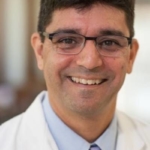
Michael Lauzardo, M.D., MSc, University of Florida College of Medicine
Michael Lauzardo, MD MSc, is the director of UF Health Screen, Test, & Protect, the coronavirus control program at the University of Florida as well as the Deputy Director of the Emerging Pathogens Institute at the University of Florida. He has been involved in public health, teaching, and patient care at the University of Florida College of Medicine since 1997. Trained as an internist and pulmonologist, throughout his career his interest has focused on the clinical care of patients with tuberculosis. He has also played a key role in the Florida Department of Health, formerly serving as the Health Officer in the Florida TB Program and currently serving as the Director of the Florida TB Physicians Network. His research and clinical practice focus on tuberculosis, especially among at-risk populations. During the pandemic, Dr. Lauzardo has been engaged in various activities to control COVID-19 in the community and the state of Florida including scientific research, patient care, and community outreach activities to reduce health disparities.
Objectives:
- Describe the impact COVID-19 has on lungs, and other body systems
- Explain public health approaches utilized by UF to prevent unmitigated spread
- Explore the impact of the COVID-19 pandemic on various communities
May 26th: Behavioral Health & Tobacco Cessation
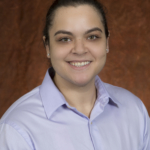 Rebecca Carter, LCSW, CTTS, Florida State University Area Health Education Center
Rebecca Carter, LCSW, CTTS, Florida State University Area Health Education Center
Rebecca Carter is a Licensed Clinical Social Worker and a Certified Tobacco Treatment Specialist. Ms. Carter earned her graduate degree in Social Work in 2013 and her Bachelor of Science in Psychology and Social Work in 2012 – both from Florida State University. She is the Tobacco Program Manager for the Area Health Education Center at the Florida State University College of Medicine. Ms. Carter is responsible for ensuring access to treatment for individuals with mental health or addictions and tobacco dependence co-morbidities. She provides community outreach, technical assistance for mental health clinicians who have been trained as Tobacco Treatment Specialists (TTS), and training for mental health organizations, as well as, facilitates tobacco dependence treatment groups for the local community mental health hospital. Ms. Carter serves on the National Alliance on Mental Illness (NAMI) Tallahassee Board of Directors, serves on the FSU College of Social Work Field Advisory Committee and on the National Association of Social Workers (NASW) Big Bend Steering Committee as the Continuing Education Chair.
Objectives
- Identify the tobacco use prevalence rates for people with behavioral health disorders and recognize these
tobacco users as a health disparities priority population. - Identify barriers to treatment and research evidence about improvements in mental health and sobriety that
result from quitting tobacco use. - Discuss the USPHS Clinical Practice Guideline for Treating Tobacco Use and Dependence treatment
recommendations.
May 27th: Policy Panel
- April Seliga, Program Manager Tobacco Free Jacksonville, Civic Communications
- Ryan McGuire, Tobacco Free Alachua, Alachua County Health Department
- David Francis, Community Advocacy Advisor, Southeast Region, American Heart Association
- Tiffany Henderson, Director, Government Relations, Florida, American Heart Association
Objectives:
By the end of the discussion, participants will:
- Develop an understanding of the preemption and the role preemption plays in tobacco policy.
- Develop an understanding of the current State and Federal laws related to tobacco sales and marketing.
- Be able to discuss at least 2 local initiatives that have been successful in Florida.
Speaker bios coming soon.

Continuing Education
Suwannee River Area Health Education Center, Inc. is a Florida Board of Nursing, Dentistry, Pharmacy, Psychology, Respiratory Care, Occupational Therapy, Acupuncture, Nursing Home Administration, Clinical Social Work, Marriage and Family Therapy and Mental Health Counseling and Florida Council of Dietetics and Nutrition approved provider of continuing education. CE Broker Provider ID #50-1922. This program meets the requirements for up to 4.0 contact hours.
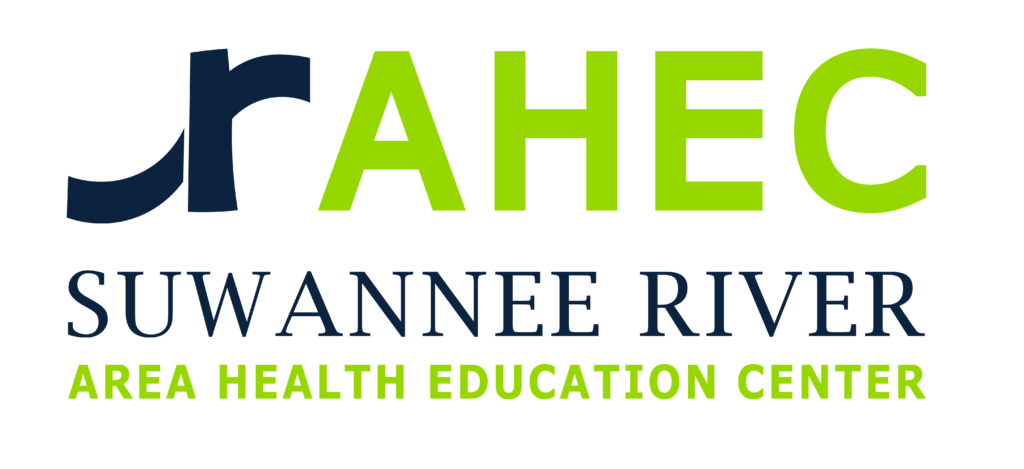
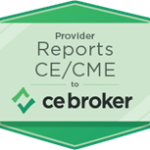
CME – Directly Sponsored
The Florida AHEC Network is accredited by the Florida Medical Association to provide continuing medical education for physicians. The Florida AHEC Network designates this live activity for a maximum of 3.0 AMA PRA Category 1 Credits™. Physicians should claim only the credit commensurate with the extent of their participation in the activity.
